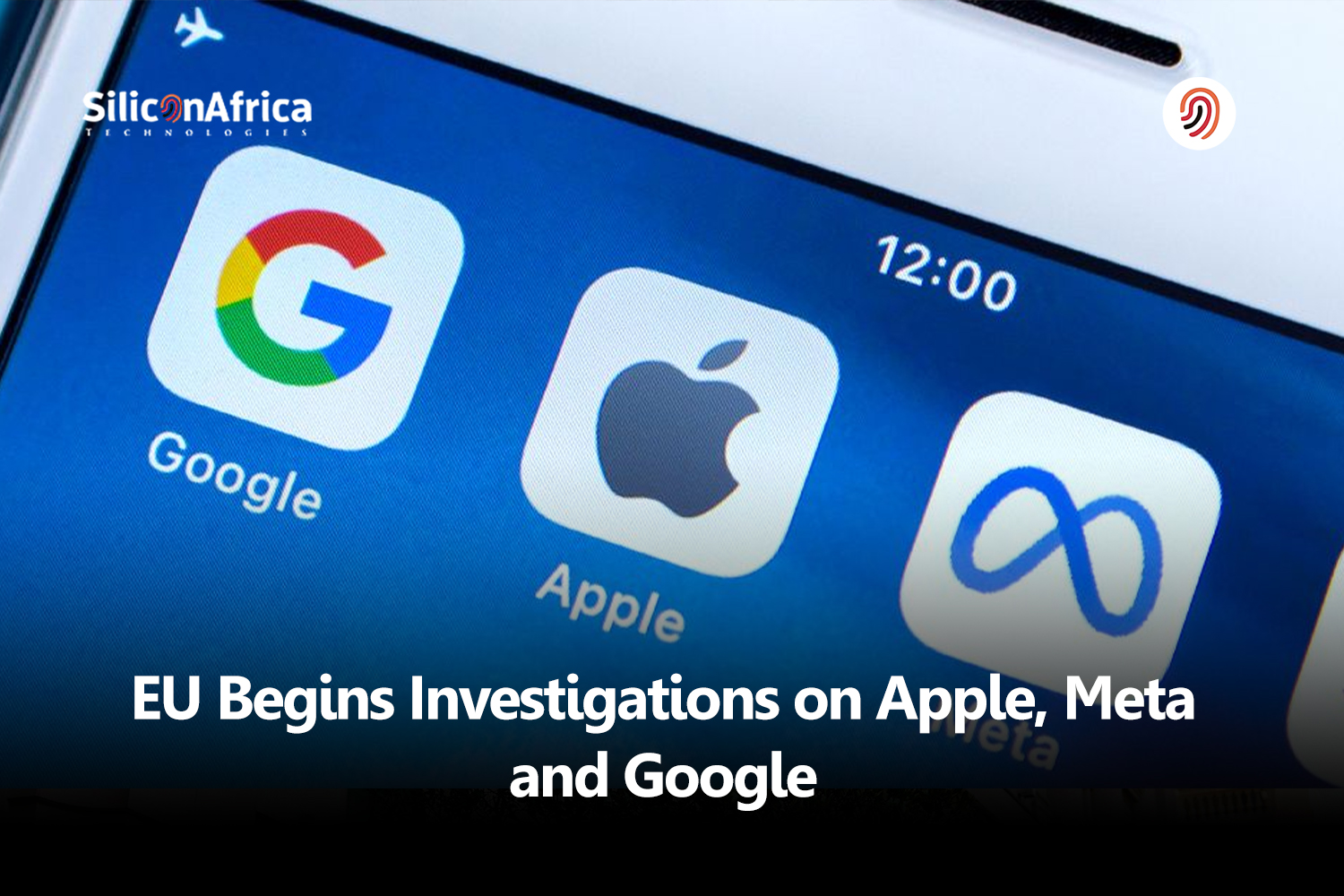Physical Address
60 Ekwema Cres, Layout 460281, Imo
Physical Address
60 Ekwema Cres, Layout 460281, Imo

The European Union (EU) has taken a significant step towards the creation of a level playing field in digital sphere by initiating investigations against three tech giants: Apple, Google’s parent company Alphabet, and Meta (formerly Facebook).
The investigations are based on concerns that these companies may be non-compliant with the Digital Markets Act which was recently enacted.
Passed in November 2022, DMA sets up a framework for regulation of large online platforms as “gatekeepers”.
These gatekeepers, who are distinguished by their size and market power, are subjected to specific obligations so that there is a fair and competitive environment for businesses and users in EU.
The EU Commission, the bloc’s executive arm, has made known five separate investigations focusing on practices which it believes may violate the Digital Markets Act (DMA).
Here is a breakdown of the key areas under scrutiny:
App Store Restrictions: Both Apple and Alphabet are being investigated in relation to their app store policies, specifically on “steering rules.”
The EU Commission finds these rules as limiting the ability of app developers to advertise alternative payment methods or to directly inform users about offers outside of their app stores (Google Play Store and Apple App Store).
This could hamper competition and put smaller app developers at a disadvantage since they use alternative payment systems.
Meta’s “Pay or Consent” Model: Meta is under scrutiny for its ‘pay or consent’ model.
The model at its core gives users the choice to either pay a subscription fee or surrender their personal data to access certain features on Meta platforms.
The EU Commission questions whether this practice may breach DMA provisions on user choice and data protection.
Transparency and Interoperability Issues: These investigations will also cover broader issues of transparency and interoperability.
The EU Commission seeks to ensure that gatekeepers like Apple, Google, and Meta provide app developers and users with clear and transparent terms and conditions.
In addition, the DMA requires some level of interoperability so that users can transfer data and access services across different platforms without obstacles.
Read More: Campaigners Accuse X of Taking Payment From Terrorists
Should the investigations show that Apple, Alphabet or Meta have violated the DMA, there could be some serious implications.
The European Commission has been given the authority to levy heavy fines of up to 10% of a company’s global turnover and may even require them to change their business practices if they are in breach of the DMA.
The investigations represent an important stage in the EU’s ongoing work on creating fair competition in digital markets.
For a long time now, the block has had concerns that big tech companies like Apple, Google and Meta possess too much power and this can possibly hinder innovation and consumer choice.
DMA is an evident endeavor to establish a balanced digital environment that can benefit businesses as well as users.
The findings of these inquiries may likely result in a ripple effect across the whole tech industry.
If EU finds Apple, Alphabet and Meta guilty, it might pave the way for tougher enforcement of DMA, which can make other big players to review their app store policies and user data practices in order to comply with the DMA regulations.
However, the actions of EU are a clear indication to tech giants that they should not take for granted their unchallenged power.
The bloc’s pledge for fair competition in the digital market will make companies change their way of doing business to operate under a regulated framework.